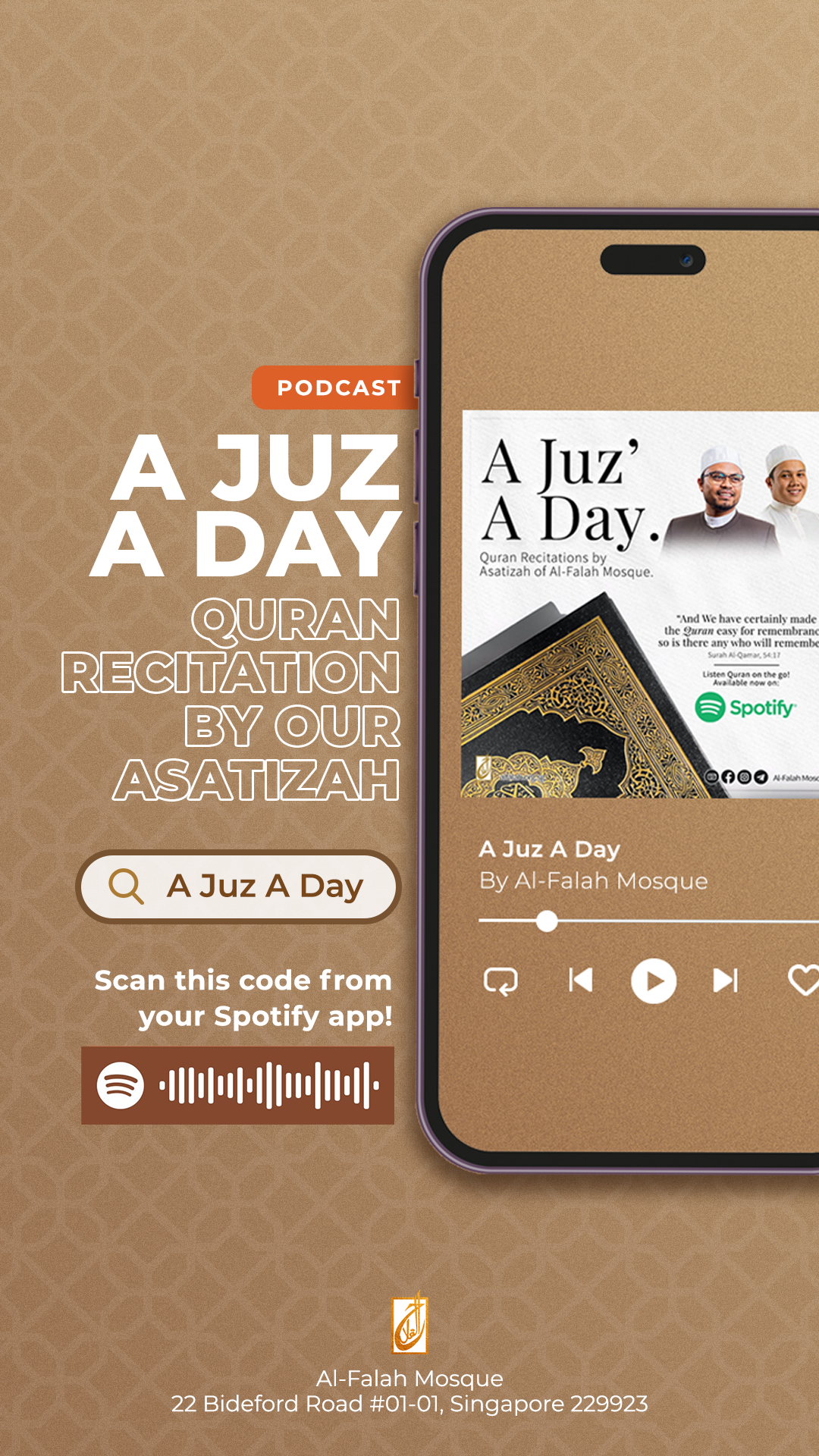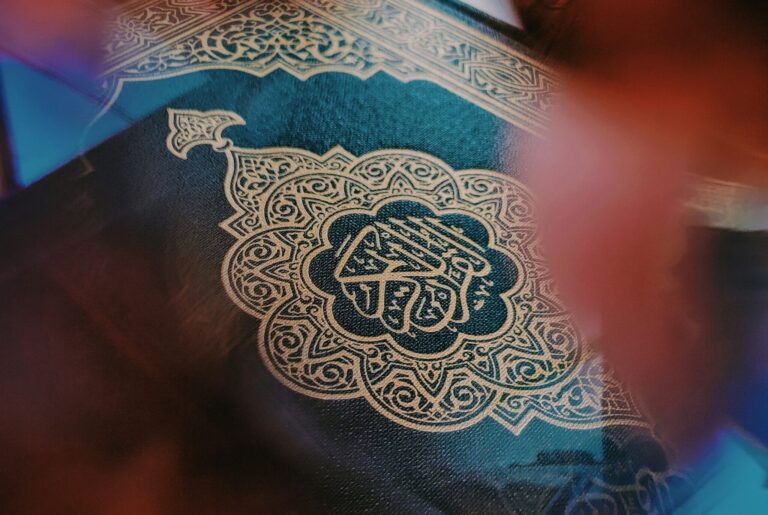Articles
How to stay Spiritual even when we are Busy.
When you are going out to work, read this Du’a.
As Muslims, we should always start right in all of our affairs. As many of us work (in our own professions and schedules), we are recommended to start the day right. One of the ways to do so is to seek protection from Allah SWT of others and wrong from ourselves when we leave the house. As we embark on our journey to work daily, here’s a Sunnah of the Prophet SAW when he left the house for his affairs:
Whenever the Prophet (SAW) stepped out of his house, he would say, “Bismillah, tawakkaltu ‘alallah. Allahumma inni a’udhu bika an adilla aw udalla, aw azilla aw uzalla, aw azlima aw uzlama, aw ajhala aw yujhala ‘alayya”.
“[I go forth. (I begin with the Name of Allah, I trust in Allah; O Allah! I seek refuge in You from leaving or being led astray, or against slipping or being caused to slip; or doing injustice or being done injustice; or doing wrong or having wrong done to me)]”. (Tirmidzi graded it as Hasan)
(Arabic Wordings):
بِسْمِ اللَّهِ تَوَكَّلْتُ عَلَى اللَّهِ، اللَّهُمَّ أَعُوذُ بِكَ أَنْ أَضِلَّ، أَوْ أُضَلَّ، أَوْ أَزِلَّ، أَوْ أُزَلَّ، أَوْ أَظْلِمَ، أَوْ أُظْلَمَ، أَوْ أَجْهَلَ، أَوْ يُجْهَلَ عَلَيَّ
Have one small deed that you practise daily.
When we are busy, we usually say to ourselves that we do not have the time to do any Ibadah/acts of worship. This is due to the misconception in thinking that Ibadah has to be done in huge amounts. Such a mindset will demotivate us totally from remaining spiritual. This Hadith will tell you otherwise, because truly, the Prophet SAW has taught us that the best of acts are those that are small but consistent.
Abu Huraira reported: The Messenger of Allah, peace and blessings be upon him, said, “Take up good deeds only as much as you are able, for the best deeds are those done regularly even if they are few.”
(Ibn Majah, Authentic)
Why not choose one spiritual habit you are good at, and invest those small pockets of time to be consistent in it? It could be daily donations, one Sunnah prayer, or fasting; depending on which additional acts suits best to your situation.
Always make good intentions in your affairs.
Ibadah is sometimes associated to a specific act that has to be done at a certain time and place. While this is true on one hand, it should also be remembered that Ibadah can also be in the affairs that we do in our daily life, if we intend to do it for Allah SWT. Work, studying, house chores and helping others can be an Ibadah when partnered with the sole intention of pleasing Allah SWT. So make your work and affairs of those that pleases Allah SWT daily!
It is narrated on the authority of Amir al-Mu’minin (Leader of the Believers), Abu Hafs ‘Umar bin al-Khattab (may Allah be pleased with him), who said: I heard the Messenger of Allah (peace be upon him), say:
“Actions are according to intentions, and everyone will get what was intended. Whoever migrates with an intention for Allah and His messenger, the migration will be for the sake of Allah and his Messenger. And whoever migrates for worldly gain or to marry a woman, then his migration will be for the sake of whatever he migrated for.”
(Bukhari & Muslim)
Focus on perfecting the mandatory acts
The pinnacle of spirituality is to perfect the mandatory acts of worship such as mandatory prayers, fasting and other matters that are Wajib (obligated). This does not mean that extra Ibadah will not bring any benefit, rather it means that the Muslim must prioritise in what is mandatory and he or she shall get the rewards for that. Narrated Talha bin ‘Ubaidullah:
A bedouin with unkempt hair came to Allah’s Messenger (ﷺ) and said, “O Allah’s Messenger (ﷺ)! Inform me what Allah has made compulsory for me as regards the prayers.” He replied: “You have to offer perfectly the five compulsory prayers in a day and night (24 hours), unless you want to pray Nawafil.” The bedouin further asked, “Inform me what Allah has made compulsory for me as regards fasting.” He replied, “You have to fast during the whole month of Ramadan, unless you want to fast more as Nawafil.” The bedouin further asked, “Tell me how much Zakat Allah has enjoined on me.” Thus, Allah’s Messenger (ﷺ) informed him about all the rules (i.e. fundamentals) of Islam. The bedouin then said, “By Him Who has honored you, I will neither perform any Nawafil nor will I decrease what Allah has enjoined on me. Allah’s Messenger (ﷺ) said, “If he is saying the truth, he will succeed (or he will be granted Paradise).
(Bukhari)
Find the Golden Timings to make du’a.
Doing Ibadah is also about being strategic and finding the best times to do supplementary acts of worship. There are many moments in the day/week where Allah SWT promises that prayers made will have a higher possibility of it being answered (though this does not mean that any other timings will not be answered, because Allah SWT is the One who Answers all prayers)
Some timings for you to take note to make extra du’a are:
- Last third of the night
- During the call to prayer/adzan (if you hear it live/mosque)
- In between the call to prayer and the Iqamah (if you hear it live/at the mosque)
- After the obligatory prayers (make du’a here!)
- The final hour of Asar on Friday (the Golden Hour)
Perhaps the next time you encounter these timings, you may make a quick du’a and seek forgiveness from Allah SWT!
Zikr: On The Go
If you want to heighten your spirituality, one of the easiest ways to do so is to increase in Zikr (remembrance of Allah SWT). And yes, it is as simple as reciting it quietly while you run errands, on your commute and while completing house chores.
You don’t need to do the difficult ones if you’re busy; as simple as saying Subhanallah, Alhamdulillah, Allahu Akbar, La Hawla Quwwata Illa Billah and Astaghfirullah repeatedly will reap huge rewards! It is also highly recommended to do the morning and evening Azkaar, for protection and blessings of the day!
Allah SWT says in Surah Al-A’raf verse 205:
وَاذْكُر رَّبَّكَ فِي نَفْسِكَ تَضَرُّعًا وَخِيفَةً وَدُونَ الْجَهْرِ مِنَ الْقَوْلِ بِالْغُدُوِّ وَالْآصَالِ وَلَا تَكُن مِّنَ الْغَافِلِينَ
Remember your Lord inwardly with humility and reverence and in a moderate tone of voice, both morning and evening. And do not be one of the heedless.
Do not forget to rest and do not overdo.
It is a commendable trait to want to do as many acts of worship, especially if we are zealous. We must keep up with such an attitude, but must also learn to pace ourselves when we feel burnt out and tired. Many a time, if we do too much and beyond our capacity, the efforts will be short-lived. So pace yourself in your Ibadah, strive to do what you can, and take rests (within what Allah SWT has allowed for) when it is needed. The Prophet SAW was the best example for moderation. He, Peace & Blessings Be Upon Him reminded us:
The Prophet (SAW) said, “Religion is very easy and whoever overburdens himself in his religion will not be able to continue in that way. So you should not be extremists, but try to be near to perfection and receive the good tidings that you will be rewarded; and gain strength by worshipping in the mornings, the afternoons, and during the last hours of the nights.”
(Bukhari)
Love goodness, Spread goodness.
Being busy is not a hindrance to doing good and spreading goodness. This is applicable and evergreen anywhere and anytime. It can be as simple as greeting a stranger with a good morning or Salaam, giving food to the poor and needy, helping someone in need without expecting anything in return, treating a colleague or friend to lunch, or listening to someone who needs a listening ear. Opportunities to do goodness and spreading it is abundant, and a Muslim should make it a habit to do at least one act of goodness everyday, no matter how simple and small.
It is narrated on the authority of Abu Huraira that the Messenger of Allah (SAW) observed: “Be prompt in doing good deeds…”
(Authentic according to Muslim – narration is part of a longer hadith)
Excellency in work is also an act that pleases Allah.
Sometimes, being spiritual is also about the state of your heart and mind when you are doing your work. This is what we call ‘Itqan’ or ‘Ihsan’ which is excellency in whatever that we do. This is part of the attitude of being a true Muslim; to produce and show what is the best and giving the maximum in whatever that we do. So do your utmost best in any of your endeavours, from the smallest of matters, to the most difficult of tasks, for Allah SWT loves to see His servants strive and excel. It is mentioned in a number of Hadiths, which you may take as a motivation:
“Allah loves to see one’s job done at the level of itqan.”
(Muslim)
“Do the best as if you see Allah, if not, Allah sees you”
(Al-Bukhari)
Disclaimer
Support Our Dakwah











